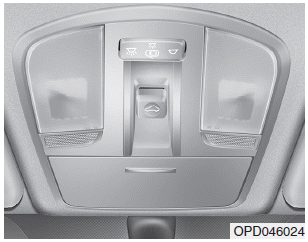Hyundai i-30: Trailer towing / If you decide to pull a trailer?
Here are some important points if you decide to pull a trailer:
- Consider using a sway control.You can ask a trailer towbar dealer about sway control.
- Do not do any towing with your vehicle during its first 1,200 miles (2,000 km) in order to allow the engine to properly break in. Failure to heed this caution may result in serious engine or transmission damage.
- When towing a trailer, be sure to consult a HYUNDAI authorised repairer for further information on additional requirements such as a towing kit, etc.
- Always drive your vehicle at a moderate speed (less than 60 mph (100 km/h)) or posted towing speed limit.
- On a long uphill grade, do not exceed 45 mph (70 km/h) or the posted towing speed limit, whichever is lower.
- Carefully observe the weight and load limits provided in the following pages.
Trailer weight

What is the maximum safe weight of a trailer? It should never weigh more than the maximum trailer weight with trailer brakes. But even that can be too heavy. It depends on how you plan to use your trailer. For example, speed, altitude, road grades, outside temperature and how often your vehicle is used to pull a trailer are all important. The ideal trailer weight can also depend on any special equipment that you have on your vehicle.
Tongue load

The tongue load is an important weight to measure because it affects the total Gross Vehicle Weight (GVW) of your vehicle. The trailer tongue should weigh a maximum of 10% of the total loaded trailer weight, within the limits of the maximum trailer tongue load permissible.
After you've loaded your trailer, weigh the trailer and then the tongue, separately, to see if the weights are proper. If they aren’t, you may be able to correct them simply by moving some items around in the trailer.
WARNING
Take the following precautions:
- Never load a trailer with more weight in the rear than in the front. The front should be loaded with approximately 60% of the total trailer load; the rear should be loaded with approximately 40% of the total trailer load.
- Never exceed the maximum weight limits of the trailer or trailer towing equipment. Improper loading can result in damage to your vehicle and/or personal injury. Check weights and loading at a commercial scale or highway patrol office equipped with scales.
Information
With increasing altitude the engine performance decreases. From 1,000 m above sea level and for every 1,000 m thereafter 10% of vehicle/trailer weight (trailer weighter + gross vehicle weight) must be deducted.
Reference weight and distance when towing a trailer

M/T : Manual transmission
A/T : Automatic transmission
DCT : Dual clutch transmission
 Trailer towing
Trailer towing
If you are considering to tow with
your vehicle, you should first your
country's legal requirements. As laws
vary the requirements for towing trailers,
cars, or other types of vehicles
or apparatus may differ...
 Trailer towing equipment
Trailer towing equipment
Towbars
Information
The mounting hole for towbars are
located on both sides of the underbody
behind the rear tyres.
It's important to have the correct towbar
equipment...
Other information:
Hyundai i30 (PD) 2018-2025 Service Manual: Power Window Switch
Components and components location Components [Power window Main Switch] [Auto/Down Power Window Switch+None IMS] [Drive Safety + None IMS] [Driver/Assist Safety Power Window Switch+None IMS] [All Door Safety Power Window Switch+None IMS] [Assist, Rear Power Window Switch (Manual)] [Assist, Rear Power Window Switch (Auto Safety)] Schematic diagrams Circuit Diagram [Auto/Down Power Window Switch+None IMS] [Drive Safety + None IMS] [Driver/Assist Safety Power Window Switch+None IMS] [All Door Safety Power Window Switch+None IMS] Assist Power Windw Switch [Power window switch (Manual)] Rear Power Windw Switch [Power window switch (Manual)] Repair procedures Inspection Driver Power Window Switch 1...
Hyundai i30 (PD) 2018-2025 Service Manual: Relay Box (Passenger Compartment)
Components and components location Component Location [Interior Junction Block] IGPM(Integrated Gateway & Power Control Module) Circuit (IGPM) Description and operation Description Communication Network Diagram Abbreviation Expalnation ECM Engine Control Module TCU Transmission Control Unit MDPS Motor Driven Power Steering AEB Autonomous Emergency Braking LKAS Lane Keeping Assist System FPS Fuel Pump Control module RR CAMERA Rear View Carmera VACUUM Vacuum Pump CLUSTER Cluster Module ACU Airbag Control Unit DATC Dual Automatic Temp Control MTC Temp Control OCS Occupant Classification System VDC Vehicle Dynamic Control BSD Blind Spot Detection AMP Amplifier AVN Head Unit (Audio / AVN) SMK Smart Key Unit WPC Wireless Power Charger IMS Integrated Memory System DDM Driver Door Module ADM Assist Door Module BCM Body Control Module B-CAN Body Controller Area Network P-CAN Powertrain Controller Area Network M-CAN Multi media Controller Area Network C-CAN Chassis Controller Area Network Integrated Gateway & Power control Module (IGPM) Integrated Gateway & Power control Module (IGPM) is a module that performs the function of conventional Junction Block and some functions of BCM...
Categories
- Manuals Home
- 3rd Generation i30 Owners Manual
- 3rd Generation i30 Service Manual
- EPB malfunction indicator
- LKA system operation
- FCA sensor
- New on site
- Most important about car
Panorama sunroof
If your vehicle is equipped with a sunroof, you can slide or tilt your sunroof with the sunroof control lever located on the overhead console.

The ignition switch must be in the ON position before you can open or close the sunroof.
The sunroof can be operated for approximately 30 seconds after the ignition key is removed or turned to the ACC or LOCK(or OFF) position. However, if the front door is opened, the sunroof cannot be operated even within 30 seconds.
